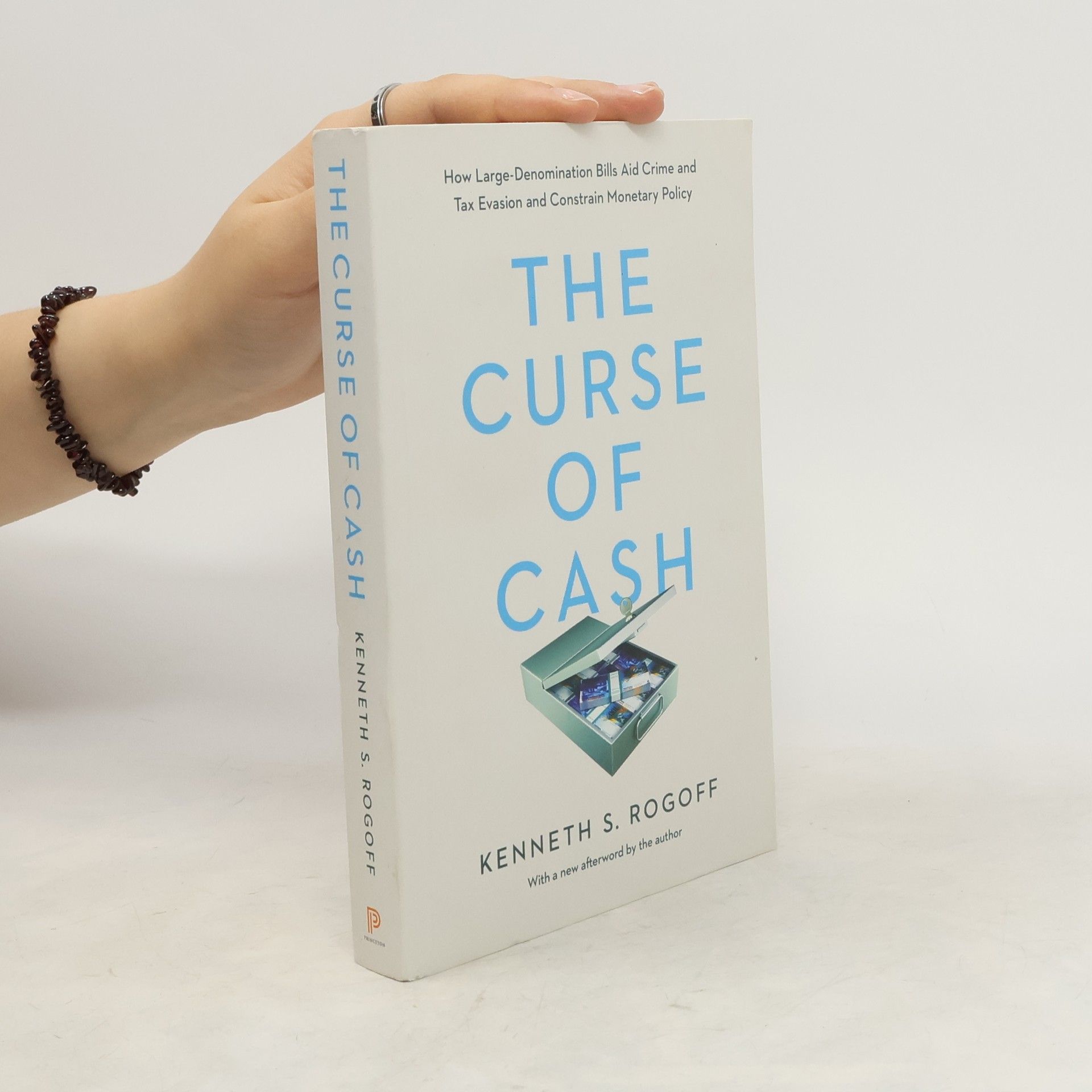This book presents evidence that public debts in the advanced economies have surged in recent years to levels not recorded since the end of World War II, surpassing the heights reached during the First World War and the Great Depression. At the same time, private debt levels, particularly those of financial institutions and households, are in uncharted territory and are (in varying degrees) a contingent liability of the public sector in many countries. Historically, high leverage episodes have been associated with slower economic growth and a higher incidence of default or, more generally, restructuring of public and private debts. A more subtle form of debt restructuring in the guise of "financial repression" (which had its heyday during the tightly regulated Bretton Woods system) also importantly facilitated sharper and more rapid debt reduction than would have otherwise been the case from the late 1940s to the 1970s. It is conjectured here that the pressing needs of governments to reduce debt rollover risks and curb rising interest expenditures in light of the substantial debt overhang (combined with the widespread "official aversion" to explicit restructuring) are leading to a revival of financial repression--including more directed lending to government by captive domestic audiences (such as pension funds), explicit or implicit caps on interest rates, and tighter regulation on cross-border capital movements.
Kenneth S. Rogoff Livres
Ken Rogoff est un économiste distingué et un Grand Maître d'échecs dont le travail explore de profondes questions économiques. Son approche analytique et sa pensée stratégique, affinées dans le monde des échecs, imprègnent ses analyses économiques. Il examine des problèmes mondiaux complexes, offrant des perspectives perspicaces sur leur résolution. Son travail académique en économie est apprécié pour sa profondeur et sa nature interdisciplinaire.






This Time is Different
- 463pages
- 17 heures de lecture
An empirical investigation of financial crises during the last 800 years
This time is different : eight centuries of financial folly
- 512pages
- 18 heures de lecture
An empirical investigation of financial crises during the last 800 years.
The Curse of Cash
How Large-Denomination Bills Aid Crime and Tax Evasion and Constrain Monetary Policy - With a New Afterword by the Author
- 320pages
- 12 heures de lecture
BRAND NEW, Exactly same ISBN as listed, Please double check ISBN carefully before ordering.
Podtitul: Osm století finančních pošetilostí. Publikace předních amerických univerzitních ekonomů C. M. Reinhartové a K. S. Rogoffa si klade otázku, proč státy již řadu století opakovaně procházejí různými typy finančních krizí, jako jsou neschopnost splácet dluhy, bankovní paniky, znehodnocování či krachy měn, či přímo komplexní finanční krize, mnohdy globálního rozsahu. Odpověď na tuto otázku pramení z lidské povahy – lidé mají tendenci si ustavičně myslet, že „tentokrát je to jinak“. Domnívají se, že lidstvo je nyní chytřejší, že jsme se poučili z chyb minulosti, že aktuální ekonomický růst bude trvat navždy, že ceny aktiv (například akcií či nemovitostí) budou jen ustavičně stoupat... Pod vlivem této mylné představy si lidé (ale i státy) stále více vypůjčují a zvyšují svou zadluženost. Pokaždé se ale ukáže, že po růstu přijde pokles, po boomu recese, cenové bubliny prasknou a dluhové břímě začne být k neunesení… Autoři podrobně mapují osm století státních či mezinárodních finančních krizí v jejich rozličných variantách a převlecích. Značná pozornost je věnována nedávné globální krizi, která se nezrodila z ničeho jiného než z výše popsaného přesvědčení, že „tentokrát je to (určitě) jinak“.
Questa volta è diverso. Otto secoli di follia finanziaria
- 432pages
- 16 heures de lecture
Throughout history, rich and poor countries alike have been lending, borrowing, crashing--and recovering--their way through an extraordinary range of financial crises. Each time, the experts have chimed, "this time is different"--claiming that the old rules of valuation no longer apply and that the new situation bears little similarity to past disasters. With this breakthrough study, leading economists Carmen Reinhart and Kenneth Rogoff definitively prove them wrong. Covering sixty-six countries across five continents, This Time Is Different presents a comprehensive look at the varieties of financial crises, and guides us through eight astonishing centuries of government defaults, banking panics, and inflationary spikes--from medieval currency debasements to today's subprime catastrophe. Carmen Reinhart and Kenneth Rogoff, leading economists whose work has been influential in the policy debate concerning the current financial crisis, provocatively argue that financial combustions are universal rites of passage for emerging and established market nations. The authors draw important lessons from history to show us how much--or how little--we have learned. Using clear, sharp analysis and comprehensive data, Reinhart and Rogoff document that financial fallouts occur in clusters and strike with surprisingly consistent frequency, duration, and ferocity. They examine the patterns of currency crashes, high and hyperinflation, and government defaults on international and domestic debts--as well as the cycles in housing and equity prices, capital flows, unemployment, and government revenues around these crises. While countries do weather their financial storms, Reinhart and Rogoff prove that short memories make it all too easy for crises to recur. An important book that will affect policy discussions for a long time to come, This Time Is Different exposes centuries of financial missteps.
Kenneth Rogoff und Carmen Reinhart analysieren in ihrem Werk die Finanzkrisen der letzten acht Jahrhunderte in über 66 Ländern. Sie zeigen, dass trotz besserer wirtschaftlicher Bedingungen und Kontrollmechanismen die Behauptung, es sei dieses Mal anders, nicht zutrifft. Ihre Untersuchung umfasst verschiedene Krisenarten und zieht klare Lehren daraus.
Der Fluch des Geldes
Warum unser Bargeld verschwinden wird
WARUM UNSER BARGELD VERSCHWINDEN WIRD Mehr als sieben Jahre nach seinem weltweiten Bestseller »Dieses Mal ist alles anders« meldet sich Kenneth Rogoff mit einem noch explosiveren Thema zurück: der totalen Abschaffung von Bargeld. 2014 war Rogoff der erste Ökonom, der ein Bargeldverbot als möglichen Ausweg zur Durchsetzung von Negativzinsen und der Eindämmung von Kriminalität ins Gespräch brachte. Seine Überlegungen haben bereits dazu geführt, dass die EZB die 500-Euro-Scheine abschaffen wird und Deutschland eine Grenze von 5000 € für Barzahlungen diskutiert. In »Der Fluch des Geldes« erläutert Rogoff, einer der profiliertesten und bekanntesten Ökonomen der Welt, erstmals denkbare Lösungen aus dem scheinbar unauflösbaren Konflikt zwischen der Beschneidung der persönlichen Freiheit und mangelnder regulatorischer Eingriffsmöglichkeiten der Finanzpolitik. Und er zeigt erstmals, dass ein Mittelweg möglich ist. Das kontroverseste Wirtschaftsbuch des Jahres!

